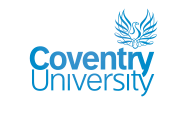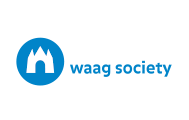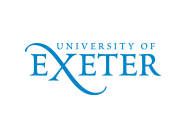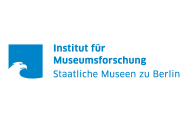

This project has received funding from the European Union’s Seventh Framework Programme for research, technological development and demonstration under grant agreement no 612789
THE UNIVERSITY OF EXETER
 Exeter is a top UK university which combines world leading research with very high levels of student satisfaction. It is one of the UK’s most popular and successful universities with campuses in Exeter, Devon, and near Falmouth in Cornwall. The University also has Project Offices in Shanghai, Beijing and Bangalore. Students and staff enjoy some of the finest campus environments in the UK. The South West counties of Devon and Cornwall boast an unrivalled mix of city life, countryside and coastline. Exeter is a member of the Russell Group, which represents 24 leading UK universities committed to maintaining the very best research, an outstanding teaching and learning experience and unrivalled links with business and the public sector. Russell Group universities play a major role in the intellectual, cultural and economic life of the UK and have an international reputation for the high quality of their research and teaching. In an increasingly global higher education market, they attract the very best academics and students from around the world, as well as investment from multinational, research intensive businesses. Exeter is ranked 10th out of more than 100 UK universities in the Times league table. It was the 2007/08 Times Higher Education University of the Year. The Sunday Times rates Exeter in 7th place and in 2012 named Exeter “Sunday Times University of the Year 2012/13”. Exeter is one of the top 200 universities in the world according to the Times Higher Education's World University Rankings.
Exeter is a top UK university which combines world leading research with very high levels of student satisfaction. It is one of the UK’s most popular and successful universities with campuses in Exeter, Devon, and near Falmouth in Cornwall. The University also has Project Offices in Shanghai, Beijing and Bangalore. Students and staff enjoy some of the finest campus environments in the UK. The South West counties of Devon and Cornwall boast an unrivalled mix of city life, countryside and coastline. Exeter is a member of the Russell Group, which represents 24 leading UK universities committed to maintaining the very best research, an outstanding teaching and learning experience and unrivalled links with business and the public sector. Russell Group universities play a major role in the intellectual, cultural and economic life of the UK and have an international reputation for the high quality of their research and teaching. In an increasingly global higher education market, they attract the very best academics and students from around the world, as well as investment from multinational, research intensive businesses. Exeter is ranked 10th out of more than 100 UK universities in the Times league table. It was the 2007/08 Times Higher Education University of the Year. The Sunday Times rates Exeter in 7th place and in 2012 named Exeter “Sunday Times University of the Year 2012/13”. Exeter is one of the top 200 universities in the world according to the Times Higher Education's World University Rankings.
The University has significant experience of participating in and managing international research projects, and currently participates in around 100 Framework Programme 7 projects. The portfolio includes the coordination of 8 FP7 Collaborative research projects, hosting 14 Marie Curie fellowships (IEF, IIF, IOF), 4 IRG/CIGs, participating in 10 Marie Curie Initial Training Networks (one of which Exeter coordinates) and 7 IRSES programmes (four of which Exeter co-ordinates) and hosting 12 ERC grants. Thus there is considerable experience and expertise available for the participation in, management and delivery of Framework Programme projects at the scientific, administrative and financial levels.
Web-site: www.exeter.ac.uk
ROLE IN THE PROJECT
The College of Humanities, within the University of Exeter, carries out excellent research and teaching across a number of related disciplines. Its areas of expertise include Archaeology, Classics and Ancient History, Drama, English, Film Studies, History, Modern Languages, Theology and Religion and Visual Culture. The University’s Humanities and Social Science (HASS) Strategy builds on Exeter’s research excellence to combine six interdisciplinary themes, all priority research areas where Exeter can demonstrate world-leading excellence. These include Medical humanities; Science, technology and culture; Environment and sustainability; Global uncertainties; Societal and lifestyle shifts; Identities and beliefs. The University also has an Arts and Culture Strategy which celebrates the University’s outstanding contributions to arts and culture in Devon and Cornwall.
Charlotte Waelde, the lead EXEUNI researcher in RICHES, has a specific expertise in digital copyright and an interest in developing further work and new understandings of the role of copyright within the European digital CH arena.
CONTACT PEOPLE

![]() Catherine Cummings (Research Fellow at the University of Exeter), C.Cummings@exeter.ac.uk
Catherine Cummings (Research Fellow at the University of Exeter), C.Cummings@exeter.ac.uk
Official Media Partner: Digital Meets Culture.
Designed and powered by: Promoter SRL.










